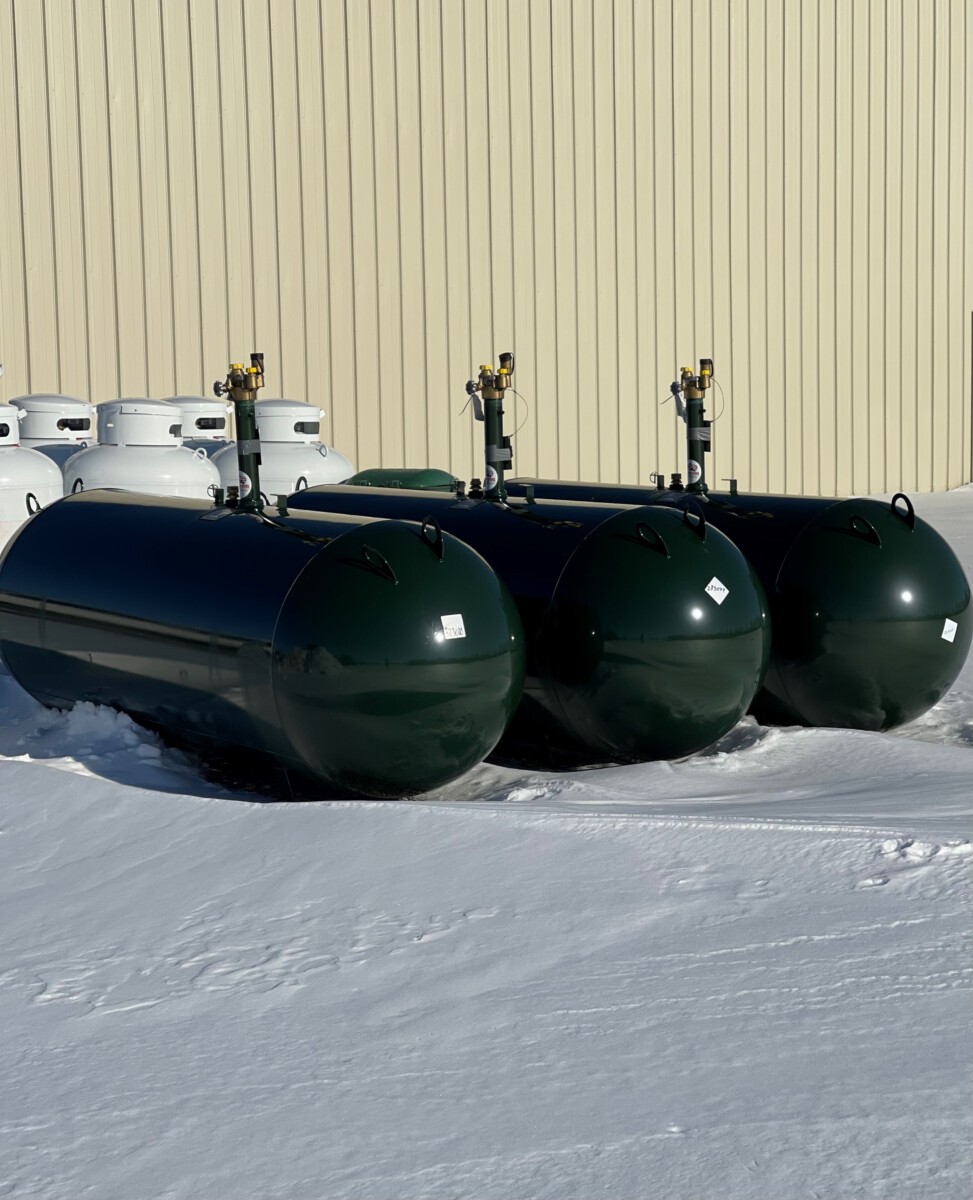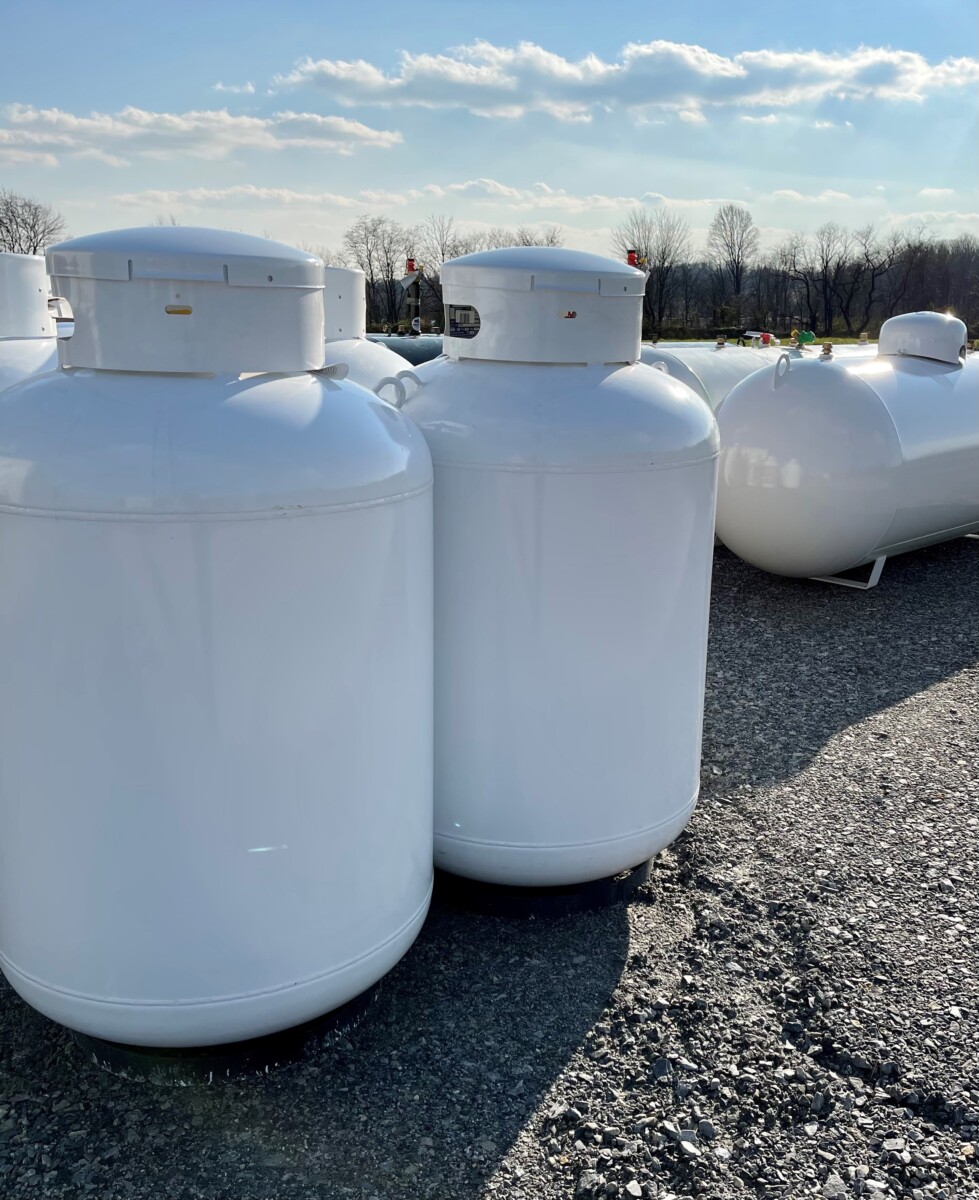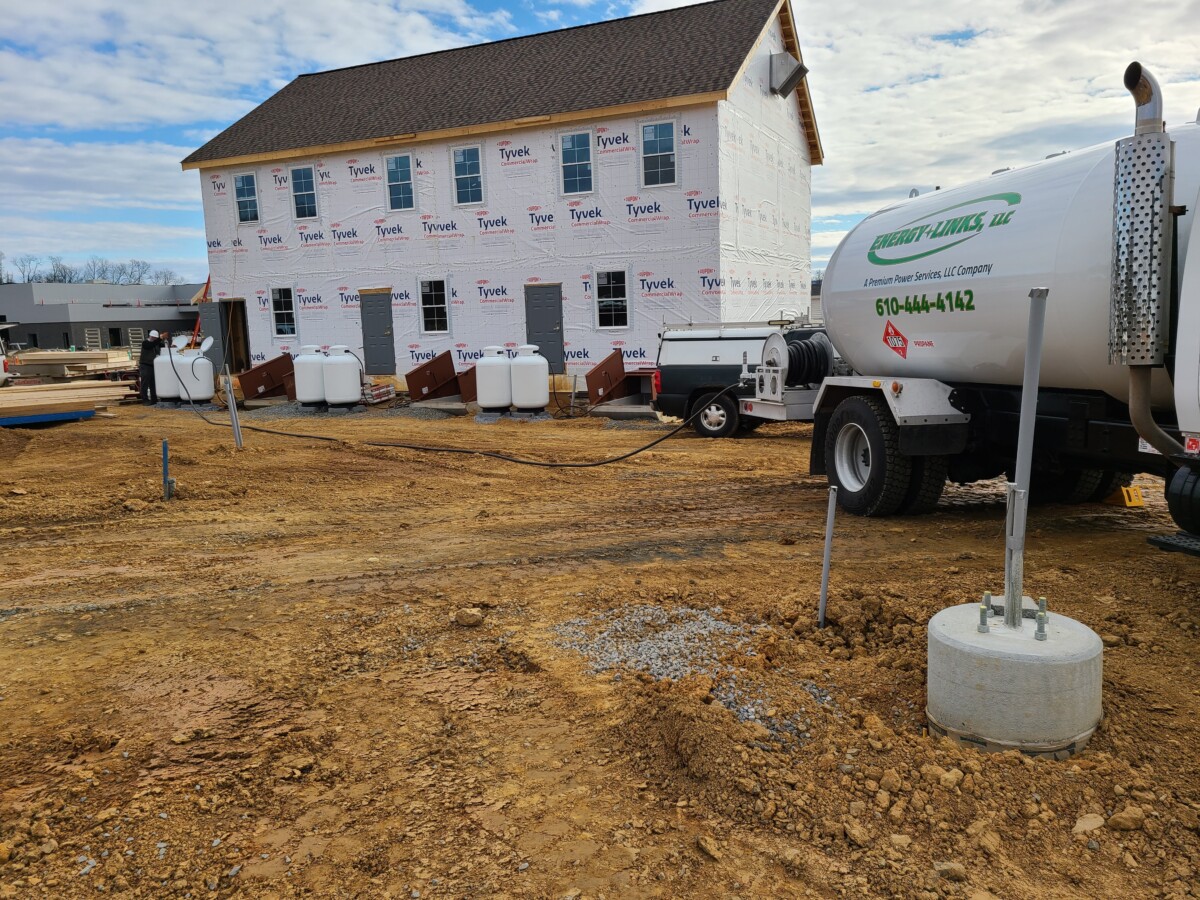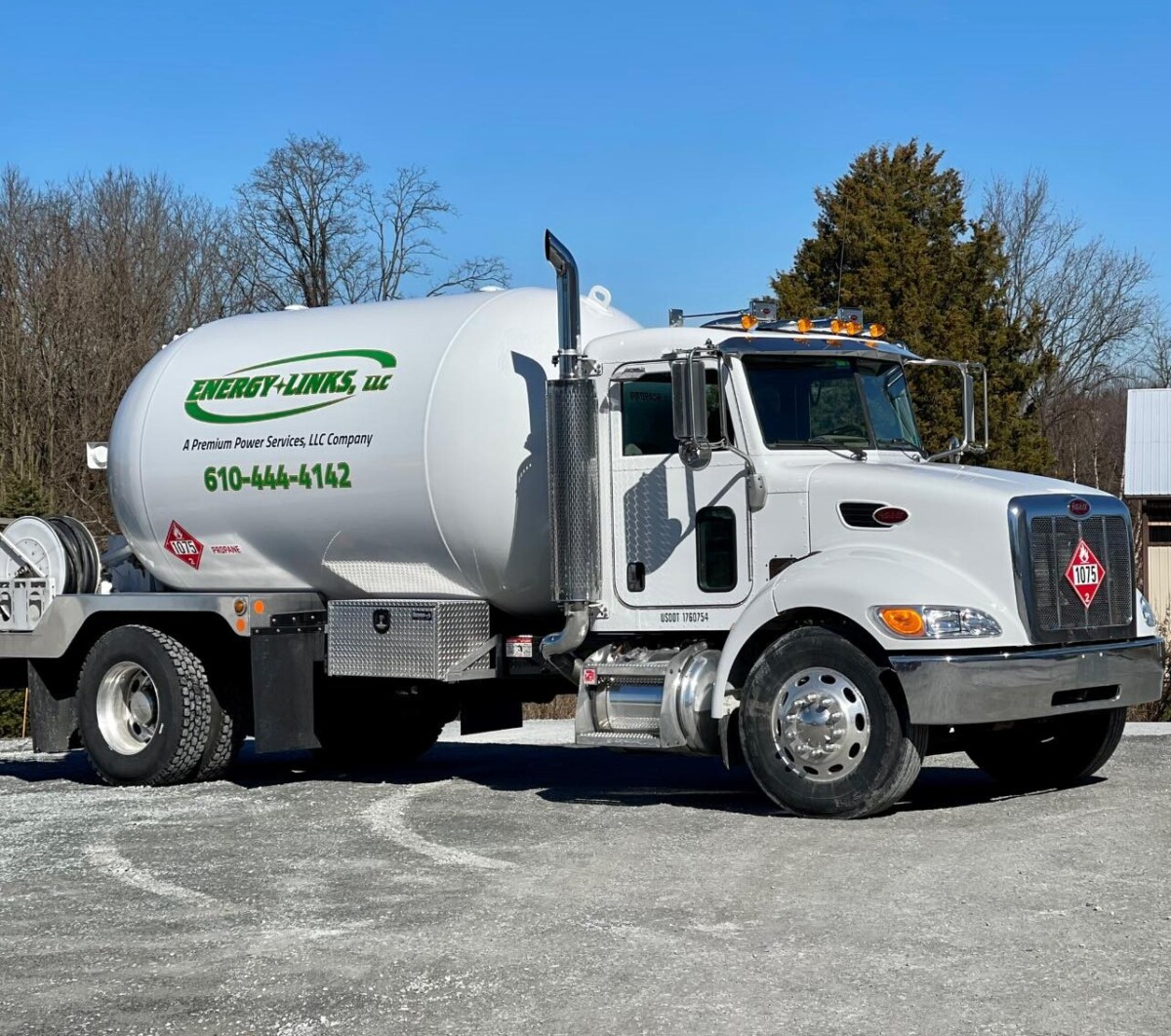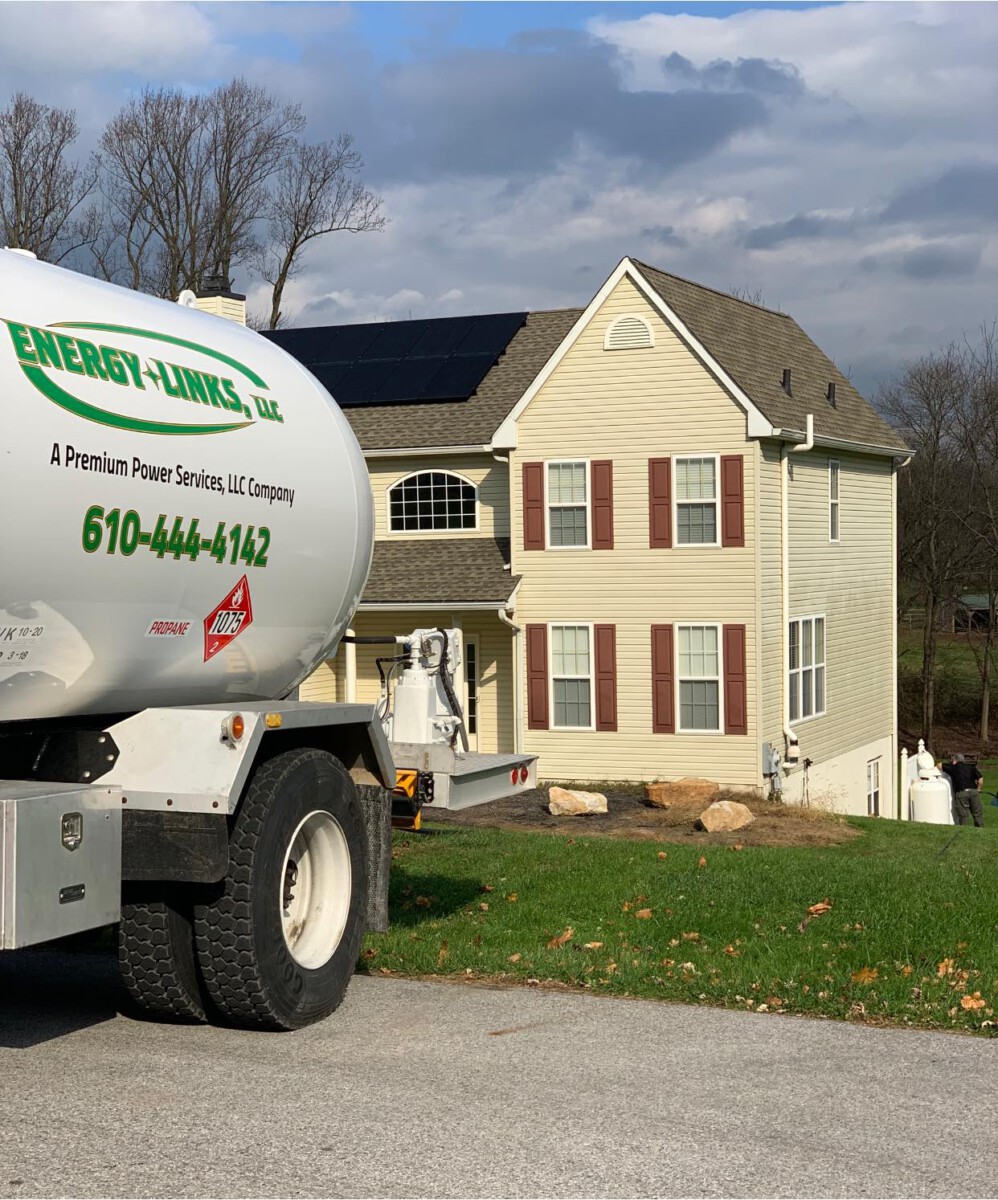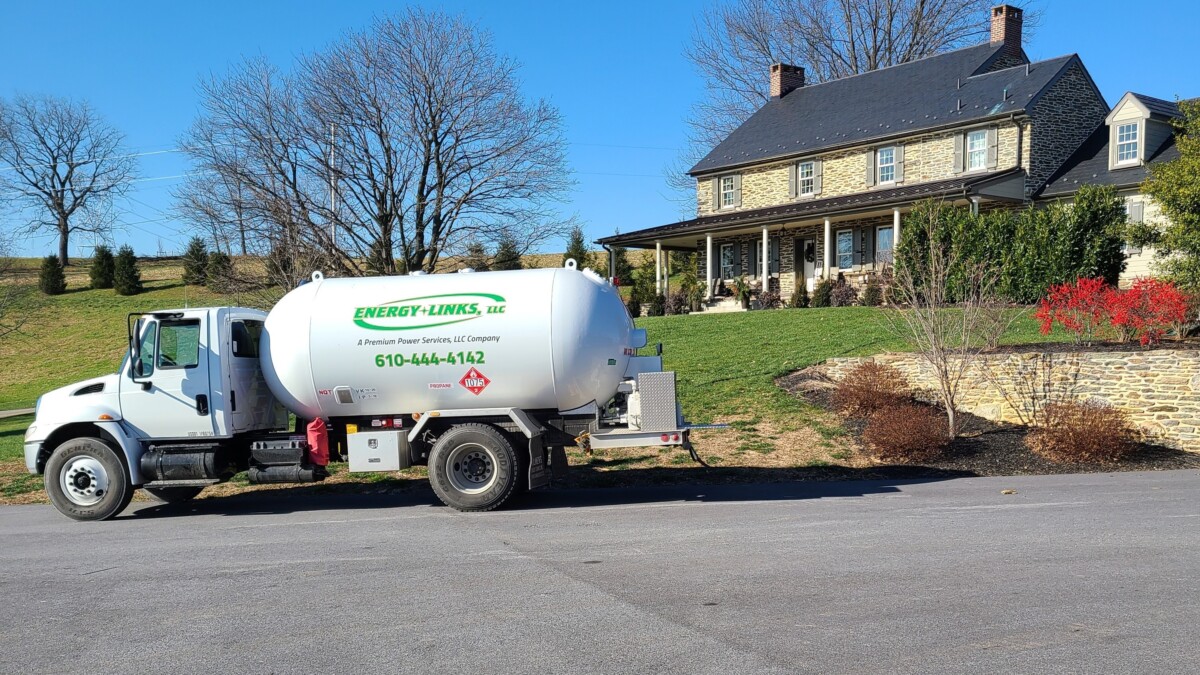
Propane Sales & Services
Energy-Links a Premium Power Services, LLC Company provides both Residential & Commercial Propane Services. We set tanks for lease or purchase. We can connect to your existing line or your heating contractors piping for a new system. Whether underground or above ground, we're able to assist you in determining what size tank(s) will be suited for your needs.
We offer propane delivery services with remote propane monitoring so when you are running low we will automatically set up a delivery.
When purchasing a new standby generator, you might feel overwhelmed with your options for fuel sources. Propane, a type of liquefied petroleum gas (LPG), is one fuel choice people often choose to power their generators.
8 Reasons You Might Want Propane to Fuel Your Generator
No Pumps? No problem.
If you have a gas- or diesel-powered generator, you’ll have to refill your tanks at a gas station when you run out of fuel. However, if the electricity is out at the station, you’re out of luck. With propane, however, this isn’t as much of an issue. Propane is readily available from dedicated providers and at gas stations (provided the station, at least, is open and will accept cash). You might also already have a large propane tank on your property if you have other devices that run on it. If so, running out of fuel is less of a risk.
Stable Without Stabilizer
Unlike gasoline and diesel, propane won't degrade over time, which means you don’t have to use it up by a certain date. It’s “shelf life” mainly depends on the quality of the storage tank. Because of the fuel’s longevity, you also don’t have to add expensive stabilizers to keep it from going bad.
Fewer Cinderella Chores
There are certain kinds of maintenance that you’ll have to conduct for gasoline and diesel generators that you won’t have to do for one that runs on propane. Gasoline and diesel leaves carbon deposits in your engine and exhaust, which need cleaned from time to time. These fuels also leave residue in fuel lines and system parts, adding additional maintenance. Propane has none of these effects upon engines, making propane-fueled generators easier (though not necessarily less expensive) to maintain.
Keeping It Clean
Propane is considered a clean-burning fuel, as it produces less pollutants than diesel and gasoline. Specifically, it produces only half as much carbon monoxide (CO) as gasoline. If fumes or pollution is a concern, propane is a good energy source to choose.
Spill-Free
Because propane tanks are equipped with safety valves, they’re far less likely to spill than gasoline and diesel fuel, the storage containers for which have no valves. The safety valves in the tanks also trap fumes, whereas most gasoline and diesel storage tanks do not, at least not to the same degree. While evaporation isn’t so much a problem with diesel, it is with gasoline, which is highly volatile. If allowed to escape its container, it’s possible to lose much of your gasoline simply through evaporation.
Even if your propane does leak out of its tank, there’s no hazard involved. Propane in its unburned state is a “green” fuel. It poses no environmental hazard, unlike gasoline and diesel.
No Bones About the Cold
Diesel and gasoline becomes more viscous in colder weather, which makes them more difficult to use. Diesel, especially, has trouble starting well when the temperature drops to winter extremes, and it needs to run at certain temperatures to perform well. If diesel engines run at suboptimal temperatures, they encounter a problem called wet stacking, which can damage the engine and degrade performance.
Propane, however, doesn’t have such temperature-related problems. It is therefore a good choice for emergency power for residents in areas with very cold winters.
No Cracked Pipes
All the reasons stated thus far have compared propane to diesel and gasoline. We’ve yet to mention natural gas. On many levels, propane is on par with natural gas in terms of performance, safety, and pollution. But propane does have one advantage: availability. Propane is stored in tanks, whereas natural gas is delivered to homes and businesses via conduits. If damage occurs during a storm to these gas pipelines, your generator will lack fuel. Rural areas also oftentimes lack access to natural gas, so propane, LPG, diesel, and gasoline are the only fuel options.
More Bang
Compared to natural gas, propane provides more than twice as much energy per cubic foot. Natural gas provides about 1,040 BTUs per cubic foot, while propane provides 2,490 BTUs per cubic foot. This means that in the same time period, you’ll burn more than twice as much natural gas as you would propane. That’s not to say propane costs less than natural gas. It costs more. But if running out of fuel is a concern, propane is a better choice because it will last you longer.

